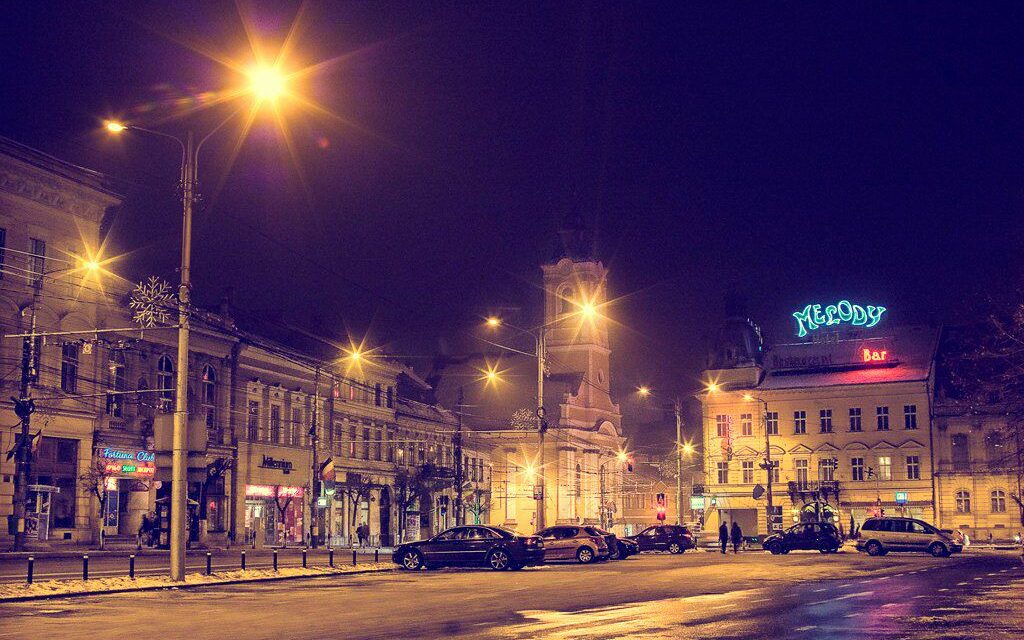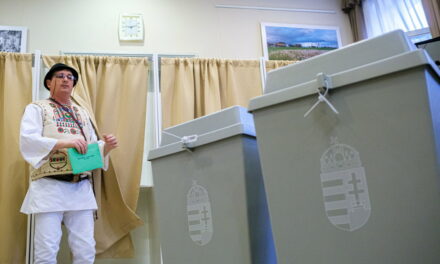With Trianon, Romania received not only the "plot", but also countless buildings connected to Hungarians. It should be noted in their favor that some of the buildings owned by Hungarian churches were not nationalized or the ownership rights were not disturbed.
However, the influx of Hungarian capital into Transylvania is viewed with disfavor not only by the far-right, chauvinist Great Romania Party, which once won parliamentary representation, but also by the AUR, which is considered by many to be its successor, and sees it as a "takeover of Transylvania". Gazeta de Transilvania exposed the latest scandal in a long article, and its first headline reads:
The Hungarian state makes acquisitions in Transylvania.
Then it continues: at a public event in Cluj-Napoca, the "György Méhes" foundation was launched, through which the Hungarian state intends to carry out "acquisitions" in Transylvania.
The foundation, named after the Cluj-Napoca writer, was presented with a theater reading program of one of the plays written by the author.
The fact that György Méhes, who died in 2007, received an award in Hungary was no longer added...
Elek Nagy, the writer's son and heir, said that the foundation starts with a capital of 300,000 euros, which they intend to increase to 3 million euros over time. After the Baumgarten Foundation, it will be the largest literary preservation foundation in the Carpathian Basin.
The main goal of the foundation is to emphasize the essence of literature, "that is, the nation lives from its language," said Elek Nagy, adding that its additional goal is to support culture, literature, poetry, young writers, poets, and cultural programs abroad and in Hungary. The preservation of traditions and the promotion of the peaceful coexistence of nations are among the objectives, as is the preservation of the work of György Méhes, G4media.ro wrote about the event.
But the author of the article is obviously not bothered by the literary aspects or the cultural programs.
We quote further:
"For many years, the listed buildings in the Transylvanian region have been owned by companies and foundations financed by Hungarian public money. investigatoria.ro conducted an extensive investigation, during which it showed how Hungarian companies participated in the purchase of historical monuments in the Transylvania region. But from this point of view, not only companies, but also civil organizations are interesting.(...) With the data available to us, everything seems to be part of a coordinated action, which has been taking place more and more intensively in recent years."
"Invaluable castles and historical houses become part of the Hungarian heritage overnight, amid the lack of interest of the Romanian state in their preservation and the significant indifference to these gestures, to which other former areas of the old empire also reacted violently."
As a counterpoint, the author of the article recalled the reaction of Slovak Foreign Minister Ivan Korcok, who publicly criticized the Hungarian government for buying land and historic buildings in Slovakia through a publicly funded investment fund.
On the other hand, he "forgot" to announce that the Hungarian state had abandoned his intention to purchase the land.
After that, he established the Bethlen Gábor Fund, which annually supports several Hungarian organizations and foundations in Transylvania with billions of forints. Among them are the Association of Hungarian Teachers in Romania, the "Football Academy" in Csíkszereda, the School Foundation, the Studium Prospero Foundation and the Sepsi OSK football team. In 2018 alone, 12.68 million euros arrived in Romania for the opening of the cultural centers in Cluj and Nagyvárad, considered the strongholds of Hungarian culture. In the same year, the Sonnerfeld Palace was purchased in Nagyvár with money from the Hungarian government, through the RMDSZ foundation.
Another building also hurts the Gazeta de Transilvania columnist. This is a building on Brassai Sámuel Street in Cluj-Napoca, where the Transylvanian State Printing Office operated. It was bought by the School Foundation for 4.9 million euros.
However, the case of the Melody Hotel in Cluj-Napoca can hurt the most, which was included in the Hungarian heritage through the Sapientia Foundation. The author writes about it like this:
"Melody Hotel was purchased by Hungary. No one announced anything, no tender process, no customer intentions, everything happened overnight."
We don't really believe this, but it is certainly suitable for creating a mood, as it also has Hungarian aspects.
The building was erected in the center of the city in the middle of the 19th century, and then rebuilt in 1890 by the architects Antal Oriold and Benedek Endstrasser, who united the former complex by means of a high tower, so the hotel became truly spectacular.
"During communism, the hotel was one of the largest and most beautiful buildings in Cluj"
- laments the author, but we don't know whether the absence of communism hurts him more, or the fact that the building passed into Hungarian ownership.
Plus, we have some bad news for him. According to our reliable source
The Hungarians also want to buy the most patinated hotel in Cluj, the Continental (the former New York coffee house).
The hotel, which is home to the literary life of Cluj, has hosted many famous poets and writers over the years. Among its regular guests were Lajos Áprily, Jenő Dsida, but Mór Jókai, count Albert Apponyi, Ferenc Molnár, and Endre Ady also stayed here, and he also enjoyed visiting the hotel's café when he visited Cluj.
According to our news, the Cluj municipality is now biding its time and would consider it a political embarrassment if the hotel were to fall into Hungarian hands (again).
Image: Facebook













